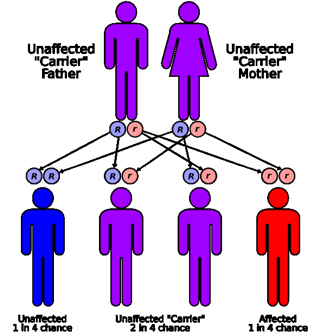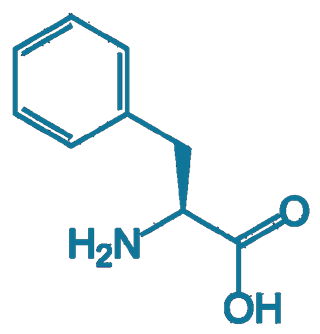What is phenylketonuria (PKU)?
Phenylketonuria (PKU) is a relatively rare inherited metabolic disorder. Those with the condition are unable to break down an amino acid called phenylalanine, which consequently builds up in the blood. Phenylalanine is found in all food proteins and in some artificial sweeteners. It’s used by the body to make proteins. If it isn’t broken down, it can increase to dangerous levels.
Women who amass hazardous levels of phenylalanine during pregnancy are at high risk of bearing children with brain damage, heart problems, an abnormally small head (microcephaly) and/or developmental issues.
The frequency of PKU varies from country to country and region to region. In the United States, for example, only roughly 1 in every 25,000 babies is born with PKU. In Russia, by comparison, this figure is around 1 in 6,800. Screening programmes in many countries mean that PKU is usually identified and treated at an early stage in areas with access to adequate medical care. The severest symptoms are thus rarely seen in developed countries.

MD mil PKU products have been distributed for over eighteen years, helping thousands of children and adults with phenylketonuria to live healthy and active lives.
How is PKU diagnosed?

Detection is usually achieved through blood spot screening within a week of birth, often through the use of a ‘heel stick’. PKU should also be considered as a possible cause in cases of developmental delays or learning disabilities in adults, as an infant with PKU may have slipped through the screening programs. This is, however, highly unlikely.
What are the symptoms of PKU?
Symptoms of PKU range from mild to severe. Severe PKU is called classic PKU. Infants born with classic PKU appear normal for the first few months after birth. However, without treatment with a low-phenylalanine diet, these infants will develop learning disabilities and behavioural problems. Other common symptoms of untreated classic PKU include seizures, developmental delay and autism. Boys and girls who have classic PKU may also develop eczema and have lighter skin and hair than family members who do not have the condition.
Babies born with less severe forms of PKU (moderate or mild PKU) may also develop learning disabilities unless treated with a special diet. If the baby only has a very slight degree of PKU, often called mild hyperphenylalaninemia, there may be no problems and special dietary treatment may not be needed.

The longstanding relationships we have with both the medical professionals who prescribe MD mil PKU, and the people who rely on it, are grounded in trust: Trust that we will never compromise on quality and always put the wellbeing of PKU patients first.
What is the treatment for PKU?

The principal treatment of PKU is adherence to a strict diet which restricts the intake of phenylalanine. This involves taking specially formulated medical food from an early age and also having regular blood checks.
People who have mild or severe PKU need to follow the diet throughout their life. Women with PKU planning on having children must consult with their doctor several months prior to conceiving, as a special dietary regime needs to be followed to avoid complications.
CONTACT US
We welcome your feedback, suggestions and business proposals.
You can fill in the form below.



